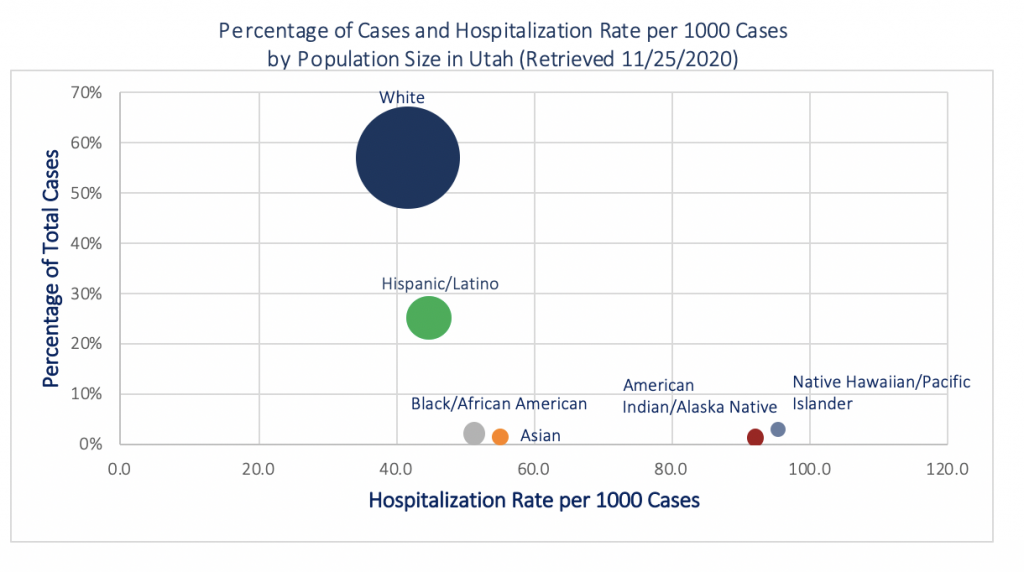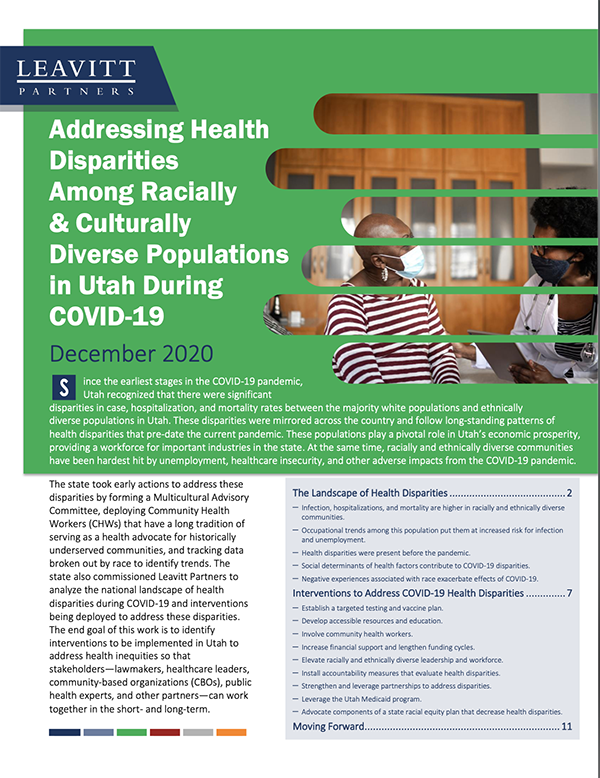Recently, as part of Utah’s COVID-19 response, the state’s Multicultural Advisory Committee commissioned a report looking into the ways multicultural communicates have been affected by the pandemic.
The report, compiled by Leavitt Partners, is entitled “Addressing Health Disparities Among Racially & Culturally Diverse Populations in Utah During COVID-19.” Based on existing literature and policies—supplemented by interviews with people in Utah—the report analyzes the national landscape of health disparities during COVID-19 and recommends interventions to adopt in Utah that would address both immediate and long-term needs of racially and culturally diverse populations.
Read the report in English here and in Spanish here.
Racially and Ethnically Diverse Communities Have Been Hit Hard by COVID-19
Across the nation and in Utah, the health of racially and ethnically diverse communities has been hit at a higher rate during the COVID-19 pandemic. For example, communities of color are experiencing higher hospitalization rates, mental health challenges, unemployment, and loss of health insurance.

Essential Workers are at High Risk for COVID-19 Infection
Jobs that have kept our state running— including transportation, healthcare support, food service, and other critical infrastructure positions—are disproportionately staffed by Black and Hispanic workers. Because of the nature of these jobs, these workers are at a high risk for COVID-19 infection. In Utah, Hispanic and nonwhite workers account for 73% of COVID-19 cases transmitted in the workplace, despite making up only 24% of employees in impacted sectors.
Existing Disparities are Exacerbated by the Pandemic
Differences in health status of these communities are not new. These disparities are driven by barriers to accessing healthcare, socioeconomic status, language hurdles, and racial trauma. Obesity, heart conditions, diabetes, high blood pressure, and smoking put individuals at higher risk of a serious COVID-19 infection. Communities of color across the nation and in Utah experience these conditions at a higher rate, making them more susceptible to COVID-19.
What Can We Do?
Addressing the uneven burden experienced by racially and ethnically diverse communities during the pandemic will require both short-term and long-term interventions.
Short term interventions, aimed at immediately supporting the COVID-related needs of these communities, could include:
- Involving community partners
- Implementing state-level hazard pay
- Ensuring accessible education on COVID-19
- Allocating important resources
- Implementing accountability measures related to health disparities
Long-term interventions, geared toward broader systemic change, could include:
- Initiatives focused on addressing social determinants of health
- Lengthening funding cycles for community-based organizations
- Improving coordination with private- and public-sector organizations to implement interventions
Additional resources for multicultural communities can be found here.

